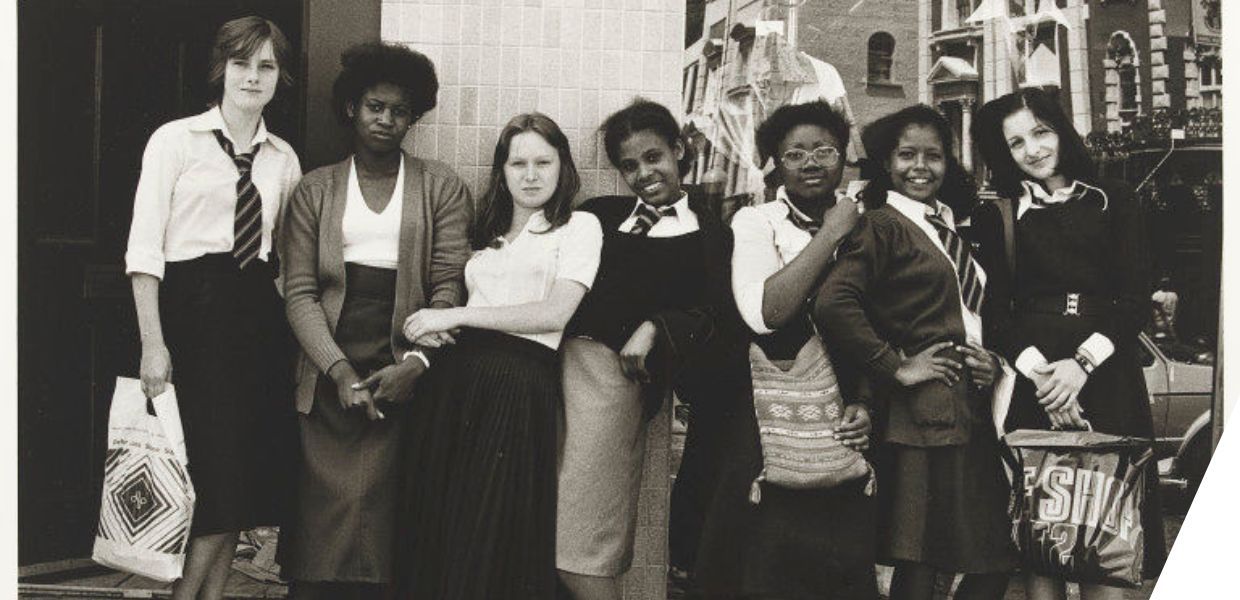Capacity building: a key pillar of the project
Thanks to an AI-powered tool and specialised vocabularies developed in collaboration with communities, the DE-BIAS project will help to detect and curate harmful language in cultural heritage collections aggregated in Europeana.eu.
Building the capacity of professionals to be aware of and address the issues the project raises is also a key part of DE-BIAS, and is coordinated by the Michael Culture Association (MCA) and Stichting Archives Portal Europe Foundation (APEF). Through different types of events during 2024, DE-BIAS aims to equip cultural heritage professionals at all levels and stages of their careers with the necessary knowledge and skills to consciously address bias in the collections they maintain and work with – more specifically the collection descriptions – and to express diversity more adequately.
Migration and colonial history; gender and sexual identity; ethnicity and ethno-religious identity; these are the three themes explored by the DE-BIAS partners in collaboration with relevant communities, thanks to whom museums and other cultural institutions will be able to present and narrate their collections in a more inclusive way.
A basis in co-creation workshops
Several of the project’s co-creation workshops have already taken place, with around 15 community members and allies not only helping to build the DE-BIAS vocabulary, but also gathering community-specific knowledge to improve the partners' catalogue data. The workshops were conducted by Katholieke Universiteit Leuven (KUL), European Fashion Heritage Association (EFHA), Stichting Nederlands Instituut Voor Beeld En Geluid (NISV) and Deutsches Filminstitut & Filmmuseum (DFF).
The DE-BIAS capacity building programme will continue to build on the experiences and results of these collaborative workshops, integrating them with more technical topics of using the DE-BIAS vocabulary and tool and end-user-centric topics about presenting diversity in metadata.
A programme for professionals, aggregators - and more
The capacity building programme is targeted at cultural heritage professionals, but also at aggregators and users of cultural heritage data, as well as policymakers and members of marginalised communities. For scale and impact on the wider cultural heritage sector, capacity building activities will cater for aggregators in their role as intermediaries and networkers across sectors and national boundaries.
Different capacity building methodologies will make participants aware of the topic of bias and current approaches in the field, bearing in mind that static approaches to cultural collections are no longer valid and that different areas of bias require different combinations of methods, tools, techniques, and people to be involved each time.
Timings and activities
Between March and early October 2024, the project will offer a series of capacity building events which can be attended independently of each other, but also as building blocks depending on attendees’ interest and availability.
The programme includes:
A series of interactive webinars in partners’ local languages focussing on awareness and community engagement, which will facilitate a deep dive into one of the three strands of bias examined by the project.
A series of train-the-trainer courses covering a range of topics, from guidelines on addressing bias in collections and representing diversity in digital heritage collections to using the DE-BIAS tool and vocabulary.
Three online/hybrid workshops focussing each on specific topics: the vocabulary, the tool, the end-user interface.
A final event focusing on recommendations on representing diversity in cultural heritage metadata, targeted at policymakers and cultural heritage professionals at a management level, as well as cultural professionals at all stages of their professional careers at an operational level.
The interactive webinars, scheduled between March and May 2024 will be organised in local languages by the community engagement partners KUL, DFF, EFHA and NISV. They have been conceived in a modular way, with a methodological input from Centro Europeo per l’Organizzazione e il Management Culturale (ECCOM) focussing on the general awareness around bias, as well as on methods and approaches concerning the identification and engagement of relevant communities and the implementation of solid relationships with them. The participants will be involved in short interactive sessions, asking them to eventually introduce examples of their own work or specific use cases related to their collections. The main objective of these webinars is to capture the audience's understanding of how to consciously address bias in their institutions’ collections.
All events will be supported by additional capacity building materials (presentations, recordings, video-tutorials, recommendations, top five lists) which will be available to everyone on Europeana Pro either for revisiting what was discussed during the capacity building events or as resources to be used at one’s own time. An interactive lecture for self-paced learning will also be provided by the end of the project through the Europeana Training Platform, in addition to the other forms of capacity building materials.
Get involved
If you would like to get involved in the events and programmes mentioned above, please keep an eye on the DE-BIAS project page, where all opportunities will be added!
For Dutch-speaking colleagues, the DE-BIAS partner KU Leuven held the interactive webinar ‘Stereotypen en bias in culturele collecties uit het koloniale tijdperk: strategieën’ (De-biasing cultural heritage collections on colonial past) on 22 March.
German-speaking colleagues can register to attend the interactive webinar ‘DE-BIAS: Diskriminierende Sprache in Archivdaten erkennen und beheben - Herausforderungen und Chancen’ on 17 April. Register now.



